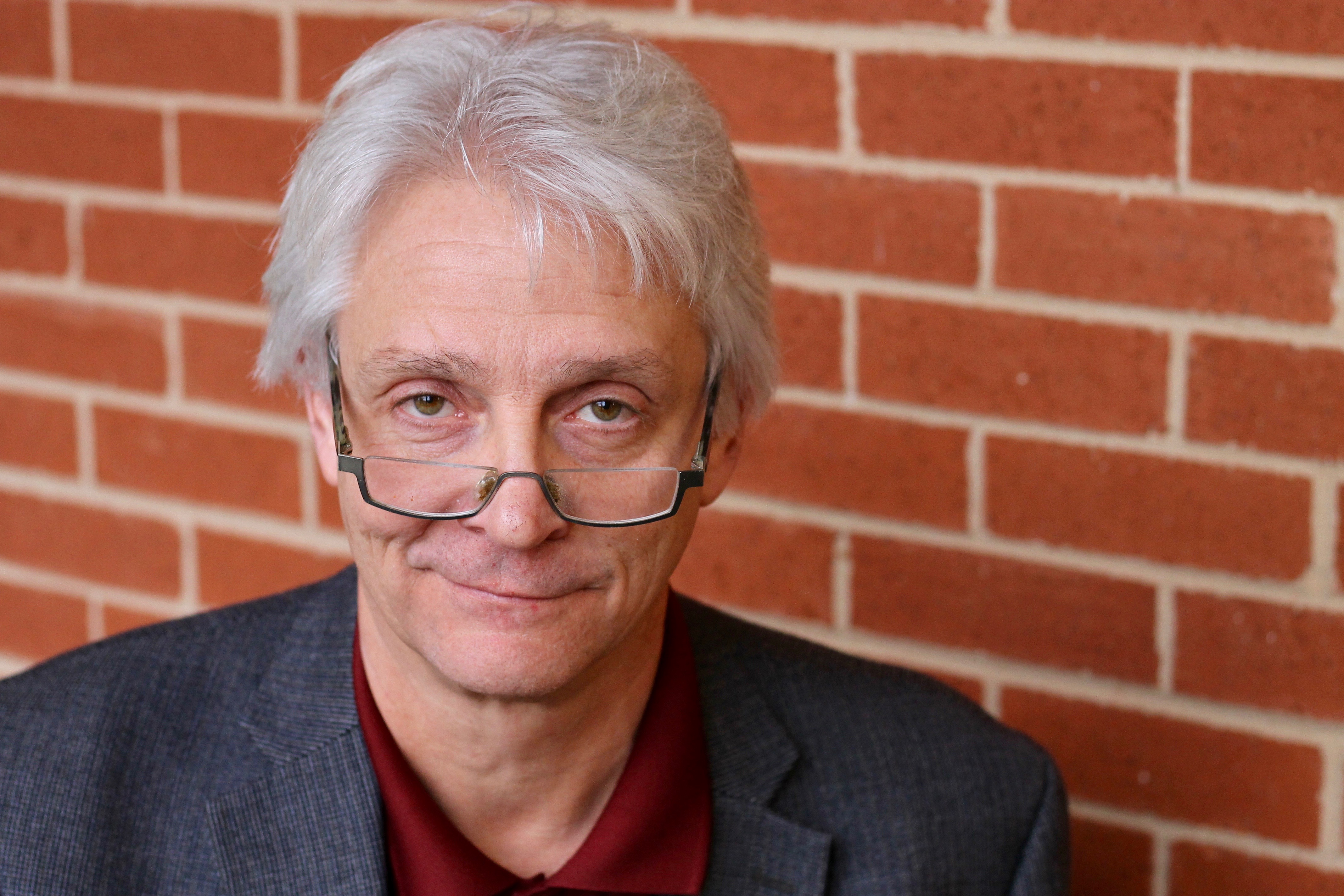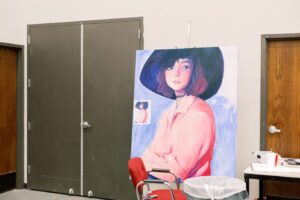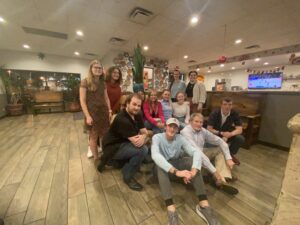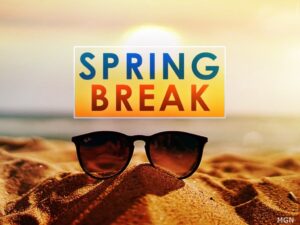The Talon, Eagle Media and EaglePR sat down with Berry Tramel of the Oklahoman yesterday to discuss his 40-year career and recent changes in the journalism industry.
Tramel is a lifelong Oklahoman, sports fan and newspaper reader, who joined The Oklahoman in 1991 and has served as beat writer, assistant sports editor, sports editor and columnist.
“Everything has changed so much in media and journalism,” Tramel said. “The only thing that has not changed are the standards, the ethics and the storytelling desire. No matter all the outside noise and all the changes, that part has never changed.”
Q. How do you think further technology advances will change the way that you, and eventually us, do our jobs?
“I joke that the next phase of technology in submitting our stories is telepathy—we’re just going to think it and it will go straight into our reader’s brains. But in all honesty, the newspaper is going to die, but that is not really relevant to people your age because it’s been dead to your generation for a while. There is going to be much more direct distribution individually. For instances, if you are an OU football fan, we will tailor your desires and your preferences so that things will be presented to you digitally, in a packaged form and you will not have to wade through the other stuff. People are already doing that in a lot of ways, whether that is politics or entertainment. The future will be highly stylized to fit individual needs.”
Q. In our current political climate, why do you believe that journalism is important?
“It is an interesting time in our country because we have a lot of people who question journalism and journalists. It is not just [President Donald] Trump. He gets a bad rep, but all he does is say what a whole bunch of people are thinking and that is why he got elected. Long before Trump got to the White House, there were a whole lot of Americans who thought poorly of journalists. They do that out of ignorance because they do not really know what life would be like without a free press. Look at Turkey, look at North Korea—there’s all kinds of places where you can see what it is like.
You do not want to live in a society without a free press and you really do not want to live in a society without newspapers. A city without a newspaper is in bad shape. Let me tell you who is having a party the day the Oklahoman dies—every state legislator. That means it is open range and the law has left town. No one is watching, no one is keeping tabs and no one is holding them accountable. They live in fear of our investigative reporters. Television tries but has never been equipped to do it the same way newspapers do. Newspapers keep the people in power in line to some degree. So, we have to get that message out to the public that journalism matters.”
Q. Are there any questions you wish you had asked someone when you were getting into your field?
“I was lucky in that I knew at an early age what I wanted to do and when I started doing it, I thought it was the greatest thing in the world. My dad had four newspapers a day delivered to our house and I read them all. By 12 or 13, I knew what I wanted to do. The first game I ever covered was a high school football game—Lexington vs. Elmore City—not exactly the Rams vs. the Packers, but I thought it was great. I can still remember the hero of the game I covered, some kid named Roger Clift. I thought it was the greatest thing ever back in 1978 and I still do. So, I was never one to think, ‘Man, I wish I would have done this or that.’ The one regret I do have was I did not complete my education at the appropriate time. I ended up quitting college early, not going back until I was 26 and then graduating when I was 36. I literally was president of the PTA at my daughter’s school, going to college and working fulltime. I do not know how I did it.”
Q. What is your opinion on citizen journalism and how popular that is becoming?
“Everyone is a journalist these days. If nothing else, cell phones make us journalists. How often do people pull one out and film something that is going on? You literally can do nothing of note without someone filming. The key is, do you know what you are doing? Many have no idea what they are doing, but one of the keys of journalism is figuring out what is legit and what is not. People use sources and all of these things, but we are trained to look into it more. My managing editor likes to say, ‘We do not print the truth. We print what people tell us.’ If the governor wants to say something that is not true, we are still going to print it and say, ‘Mary Fallin said this.’ That is the problem, everyone in America has become a journalist but most of them have no idea how to practice journalism. Everyone has access but not everyone has sense.”
Correction: This article was updated to fix two typographical errors.











Be First to Comment